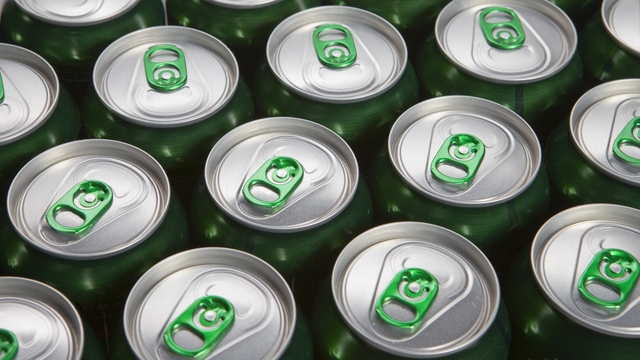 Konstantin Kulikov/PhotoSpin
Konstantin Kulikov/PhotoSpin
While energy drinks are thought to be a quicker route to a caffeine high, a new study has found that they can be considered dangerous in high doses.
The study, led by João Breda with the World Health Organization, explores why the world should be worried about energy drinks and what adverse health effects they can reap on society.
The study is largely concerned with younger adult populations, such as those in their teens and college-aged adults. A whopping 68 percent of teenagers consume energy drinks in Europe alone, based on a 2011 study from the European Food and Safety Authority.
They’ve also become quite popular among young children, through marketing tactics and fun advertisements, leading to a caffeine exposure rate of 43 percent in children.
Caffeine intoxication is the most dangerous adverse effect that can stem from energy drink consumption.
Healthy adults should have no more than 400 milligrams per day of caffeine. Pregnant women should not exceed 200 milligrams. Children should have no more than 45-85 milligrams per day depending on how much they weigh, according to an article on WebMD.
When you drink an 8-ounce cup of coffee you're getting somewhere around 100 milligrams of caffeine, according to WebMD. There is some variation from brand to brand. For instance, there are 165 milligrams of caffeine in 8 ounces of Starbucks coffee.
There is a range of caffeine content amongst the various energy drinks.
The caffeine content in 5-Hour Energy Decaf has 6 milligrams of caffeine in a 1.9 ounce serving. That would mean roughly 24 milligrams of caffeine in eight ounces.
Some energy drinks are comparable to that cup of coffee in their caffeine content, but many score higher with 5-Hour Energy Extra Strength soaring up to 242 milligrams of caffeine in a 1.9 ounce serving.
To learn more about caffeine in energy drinks, click here.
Because energy drinks contain other ingredients such as taurine, guarana and sugar to hide all the bitterness of caffeine, they are not only tastier, but easier to tolerate and consume at a higher rate.
Caffeine intoxication is also a concern within Breda’s study because of how many young people are mixing alcoholic beverages with energy drinks.
The rationale behind this is that the caffeine will overpower the effects of the alcohol, making the person more alert rather than sluggish and intoxicated.
In reality, it is causing them to drink more because they are feeling the effects of the alcohol, which can lead to blackouts and alcohol poisoning.
Caffeine intoxication can also lead to even more serious side effects, such as heart palpitations, convulsions and psychosis.
The study concluded that those who consume energy drinks are more likely to experiment with harder substances, or experience emotional and physical stress.
As more health issues continue to appear from the consumption of energy drinks, Breda and the WHO stress the importance of certain legislation or labels when selling or making these beverages.
Limiting the amount of caffeine in an energy drink or regulating the ages of consumers would be one possible change that could help eliminate the mass consumption of these unhealthy and dangerous drinks.
The problem remains that grabbing an energy drink is more convenient than waiting in line at a crowded coffee shop or making a cup yourself. Energy drinks provide that instantaneous, sweet rush of caffeine which many people want. They are available when you are on the go with little to no hassle.
In a place like the United States, where there is essentially zero limitation on energy drink consumption and distribution, the risks for things like diabetes and obesity are much higher.
Educational programs and legislation to help eliminate these risks would urge not only adults about these adverse effects, but show children the potential dangers of what they are putting in their bodies.
Sources:
Poorly regulated energy drinks could be harming children, WHO warns. Independent.co.uk.
http://www.independent.co.uk/life-style/food-and-drink/news/poorly-regulated-energy-drinks-could-be-harming-children-who-warns-9794563.html
More research, regulation needed on energy drinks: study. Reuters.com.
http://www.reuters.com/article/2014/10/22/us-health-youth-energy-drinks-idUSKCN0IB2D120141022
Energy drink consumption in Europe: a review of the risks, adverse health effects, and policy options to respond. Journal.frontiersin.org.
http://journal.frontiersin.org/Journal/10.3389/fpubh.2014.00134/full#B2
Why Health Officials Are Concerned About Energy Drinks. Time.com. http://time.com/3510294/energy-drinks-safety
How Much Caffeine Is in Your Energy Drink? WebMD.com.
http://www.webmd.com/food-recipes/news/20121025/how-much-caffeine-energy-drink
Reviewed November 19, 2014
by Michele Blacksberg RN
Edited by Jody Smith





Add a CommentComments
There are no comments yet. Be the first one and get the conversation started!